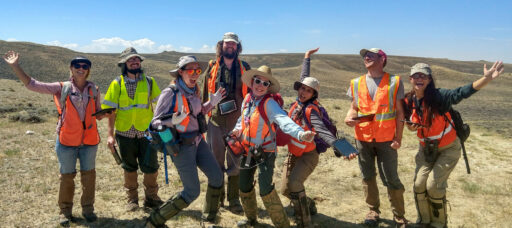2025
Comparably’s Best Company Outlook
* Providing engineering services in these locations through SWCA Environmental Consulting & Engineering, Inc., an affiliate of SWCA.

From the experts we hire, to the clients we partner with, our greatest opportunity for success lies in our ability to bring the best team together for every project.
That’s why:

At SWCA, sustainability means balancing humanity’s social, economic, and environmental needs to provide a healthy planet for future generations.

SWCA employs smart, talented, problem-solvers dedicated to our purpose of preserving natural and cultural resources for tomorrow while enabling projects that benefit people today.

At SWCA, you’re not just an employee. You’re an owner. Everyone you work with has a stake in your success, so your hard work pays off – for the clients, for the company, and for your retirement goals.
Ross Pilotte Contributes NEPA Perspectives on Environmental Business Journal Webinar
Ross Pilotte, Director of Policy at SWCA, recently joined environmental industry experts for a webinar hosted by the Environmental Business Journal (EBJ). The panel explored how recent National Environmental Policy Act (NEPA) decisions are shaping markets, permitting timelines, regulatory expectations, and the future of environmental review. The conversation is now published in EBJ’s latest report focused on an assessment of the new federal administration changes.
During the webinar, Pilotte drew from his time implementing the FAST-41 program and coordinating major infrastructure reviews to share his forward-looking view on NEPA reform. He highlighted how FAST-41 has become a model for streamlining complex infrastructure projects, reducing permitting timelines, and fostering collaboration between agencies and developers. Pilotte emphasized the growing importance of early stakeholder engagement, risk assessment, and clear, fit-for-purpose review documents to successfully navigate the evolving regulatory landscape.
Pilotte also discussed how federal agencies such as the Department of the Interior, Department of Transportation, and Department of Energy are playing key roles in evolving NEPA practice, with other agencies like the Army Corps of Engineers and the National Telecommunications and Information Administration rapidly adapting to new requirements. He stressed that the complexity of projects — especially around energy, data centers, and industrial reshoring — demands innovative approaches and proactive client strategies.
Three Key Takeaways
1. Early Engagement and Scoped Risk Assessment Are Essential
The success of a permitting project is often determined in its earliest stages. Pilotte recommends clients engage early with agencies and stakeholders, prioritize clear project scoping, and build robust administrative records. This approach helps avoid surprises, accelerates timelines, and ensures projects are “streamlined but sufficient” to withstand legal scrutiny.
2. Fit-for-Purpose, Defensible Documentation Over Lengthy Reports
In today’s NEPA environment, the focus is shifting from exhaustive documentation to concise, well-justified review documents. SWCA’s approach is to help clients create targeted Environmental Assessments (EAs) and Environmental Impact Statements (EISs) that address what is reasonable, foreseeable, and within agency jurisdiction — improving clarity, defensibility, and efficiency.
3. Innovation and Adaptability Will Shape Project Success
With agencies experimenting with new tools (like AI-assisted drafting) and workflows, and with the rise of distributed energy and data center projects, clients must be ready to adapt. Pilotte highlighted that consultants like SWCA play a critical role in helping clients and agencies navigate cross-cutting, interagency projects under accelerated timelines, maintaining public trust while delivering on complex infrastructure needs.
Or check out the full EBJ issue here.